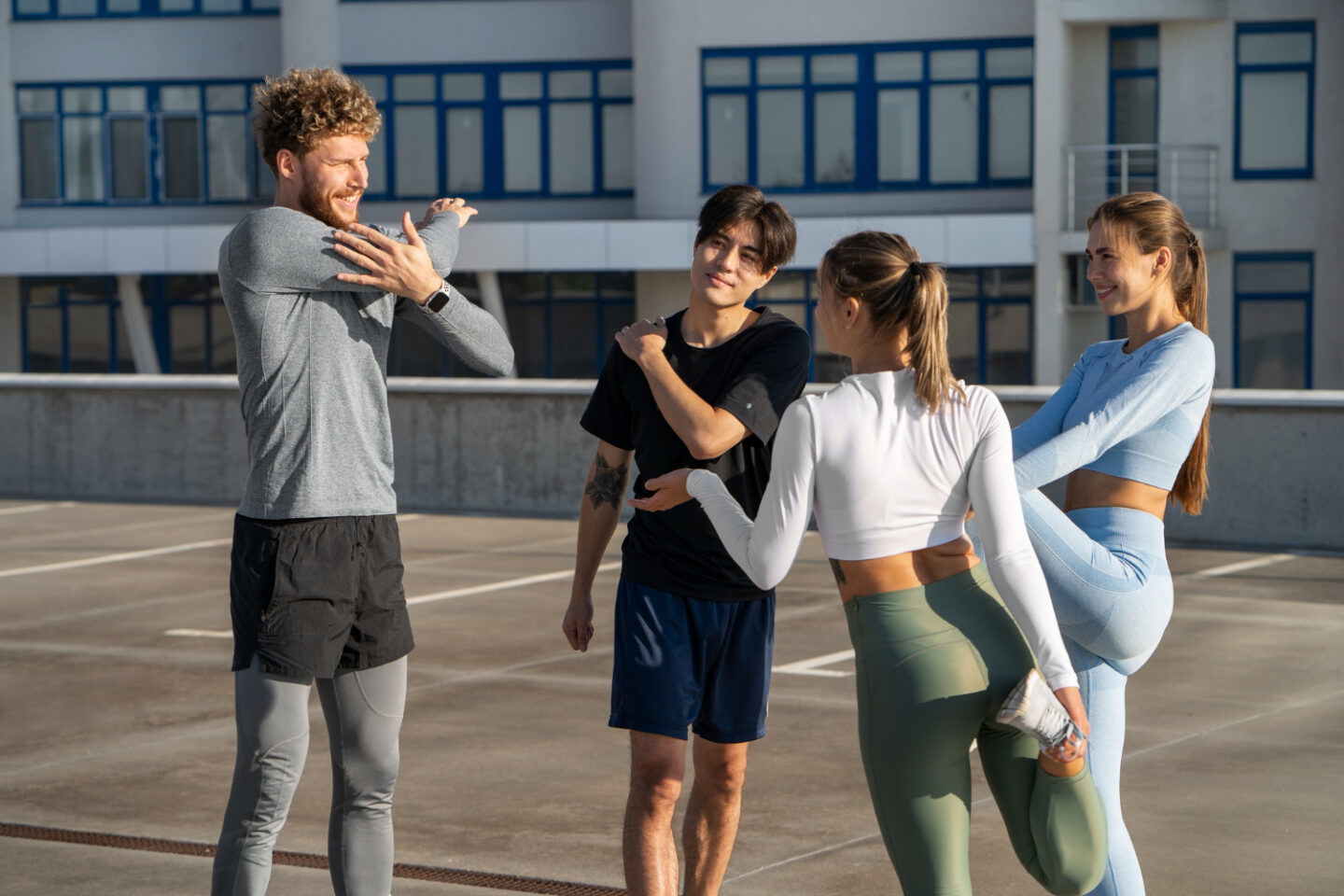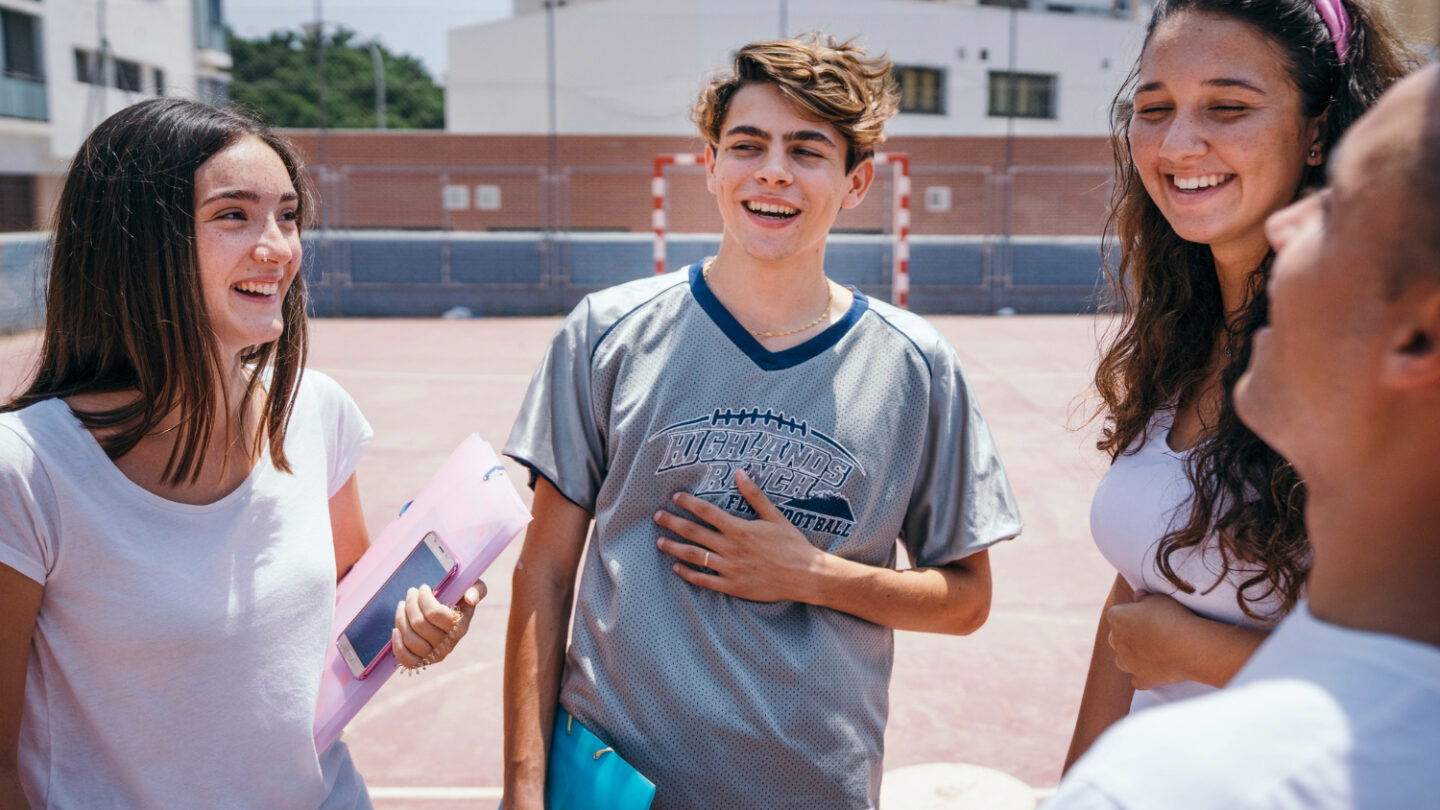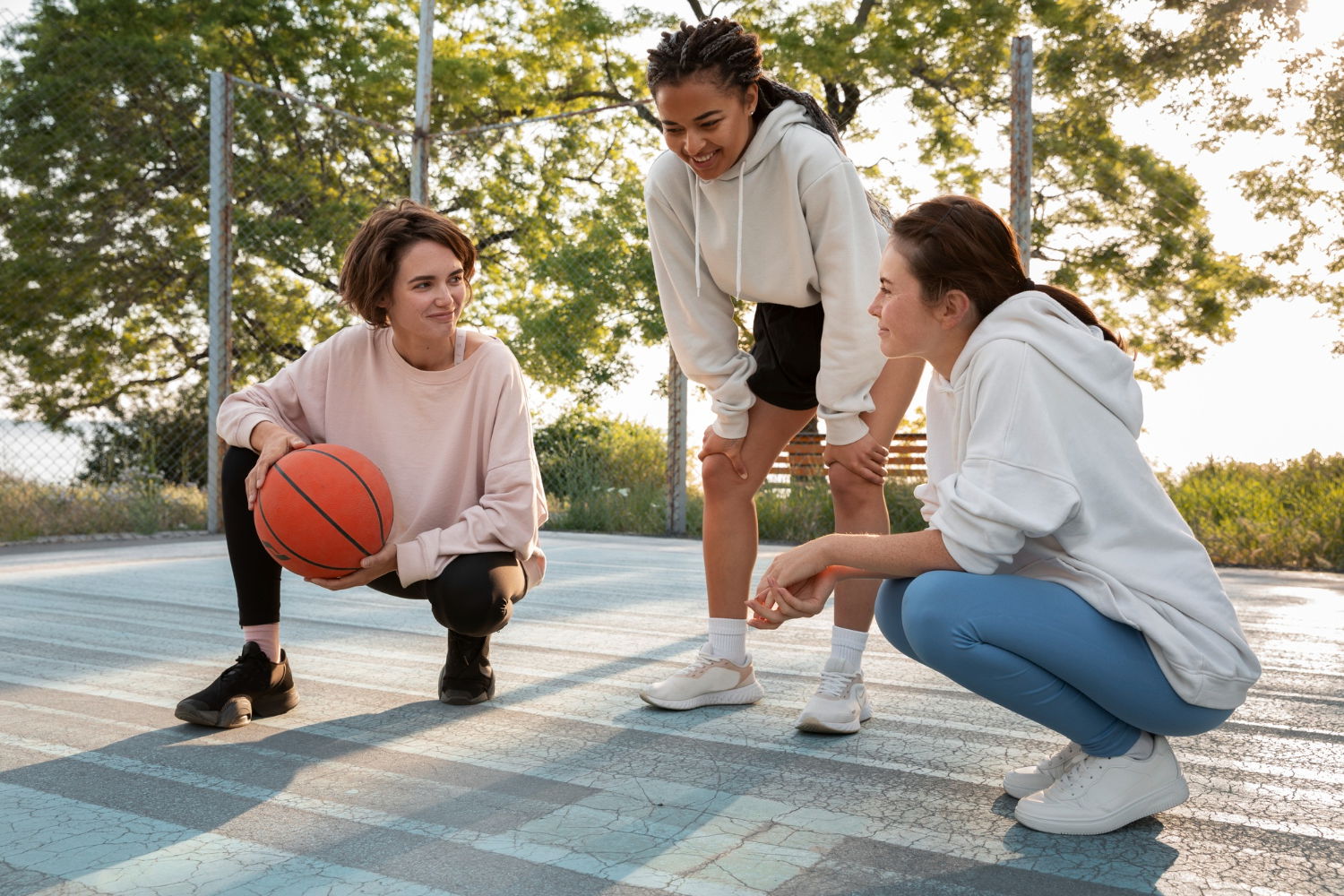The Ultimate IGCSE PE Study Guide

IGCSE PE combines theory and practical performance, making it a subject that needs careful preparation. This guide outlines the exam papers, coursework requirements, and key theory topics. Whether you take Cambridge (0413) or Edexcel (4PE1), you’ll find strategies, PE past papers IGCSE, and tips to strengthen your skills and aim for top grades.
Need help with IGCSE PE?
Introduction
IGCSE PE is unique compared to many other subjects because it requires you to perform well in both written exams and physical activities. To do well, you need to understand how the body works, how training improves performance, and how sport influences society. At the same time, you’ll be assessed on your ability to perform and analyse sports practically.
This mix of theory and practice makes the subject engaging but also demanding. Many students underestimate how much theory there is, while others worry too much about the practical performance. The truth is that both parts matter equally. By following the right plan and knowing what examiners are looking for, you can prepare well for both and give yourself the best chance of success.
What to Expect in the IGCSE PE Exam
The IGCSE Physical Education exam varies slightly depending on the exam board. Most students sit either Cambridge or Edexcel. Both have similar weightings but differ in the details of their coursework requirements.
Popular Exam Boards We Support
- Cambridge IGCSE PE (0413): This is one of the most widely taken options worldwide. It balances theory and coursework equally, with four activities assessed and a written analysis task included.
- Edexcel IGCSE PE (4PE1): This version is common in UK and international schools that follow Pearson Edexcel. It also splits the assessment between theory and practical work but requires three activities and a Personal Exercise Programme (PEP).

Both boards are respected internationally and give a strong foundation for A Levels, IB, or further study in sports science and related fields.
Paper Breakdown: Theory and Practical Components
The IGCSE PE exam is split evenly between theory and practical work, with each board setting clear requirements for both components.
Theory Paper
- Cambridge: Paper 1 – Theory (50%)
- Edexcel: Paper 1 – Theory (50%)
This section tests your PE theory knowledge, from body systems to training principles and social factors. Success comes from mastering key topics and practising with past papers.
Practical Component
- Cambridge: Coursework (Component 2) – four activities plus a written Analysis and Evaluation of Performance (50%)
- Edexcel: Coursework (Paper 2) – three activities plus a Personal Exercise Programme (50%)
This section tests your performance in chosen sports and reflection on improvement: Cambridge requires four activities plus an evaluation, while Edexcel sets three activities and a training programme. Both weigh theory and practice equally, so balance your revision and training to achieve top marks.
Assessment Objectives and Grading Criteria
Each exam board uses assessment objectives (AOs) to show what students need to demonstrate. These objectives guide examiners in marking and help you understand where your marks come from.
- AO1 – Knowledge and Understanding: showing you understand theoretical concepts such as anatomy or training methods.
- AO2 – Application of Knowledge: applying theory to real sporting situations.
- AO3 – Analysis and Evaluation: evaluating performance, making judgments, and suggesting improvements.
- AO4 – Practical Performance (Coursework): demonstrating skill in chosen physical activities.
These objectives and grade boundaries show you exactly what examiners value and how to focus your effort for the best results.
Grading Criteria (Cambridge & Edexcel)
Grades are reported as numbers or letters depending on your school, but the equivalence is the same:
- *9–7 (A or A)**: excellent knowledge, strong application, consistent practical performance.
- 6–4 (B or C): secure knowledge with some gaps, generally effective practical work.
- 3–1 (D–G): basic understanding, limited application, weaker performance.
Examiners look for a balance between theory and practical ability. Strong marks in one area cannot fully compensate for weak performance in the other, so steady progress across both parts of the course is essential for reaching the top grades.
Mastering the Theory Content
Need help with this subject?
100 % of tutors are certified teachers and examiners
The theory paper makes up half of your IGCSE PE grade, so it’s an area you can’t overlook. A solid grasp of the core topics will give you the confidence to tackle any question and show examiners you understand both the science and the wider context of physical education.
Core Topics You Must Know
The following areas form the foundation of both Cambridge and Edexcel IGCSE PE syllabuses:
- Anatomy and Physiology
- Skeletal system: functions of bones, types of joints, movement analysis.
- Muscular system: key muscle groups, antagonistic pairs, types of contractions.
- Circulatory and respiratory systems: heart, blood vessels, gaseous exchange, aerobic and anaerobic respiration.
- Movement Analysis
- Planes and axes of movement.
- Lever systems and their sporting applications.
- Force, momentum, and principles of biomechanics.
- Physical Training
- Principles of training: specificity, overload, progression, reversibility, tedium.
- Methods of training: continuous, interval, circuit, plyometrics, weight training.
- Warm-up and cool-down routines and their importance.
- Health, Fitness & Wellbeing
- Components of fitness: cardiovascular endurance, strength, agility, balance, flexibility.
- Lifestyle factors: diet, hydration, rest, stress management.
- Health risks: obesity, sedentary lifestyle, injury.
- Sport Psychology
- Skill acquisition: stages of learning, feedback, guidance types.
- Goal setting: SMARTER targets.
- Motivation and arousal, anxiety control techniques.
- Socio-cultural Influences
- Role of media, sponsorship, and technology.
- Ethical issues: performance-enhancing drugs, gamesmanship vs sportsmanship.
- Barriers to participation: gender, disability, culture, finance, access.
Covering these topics thoroughly gives you the knowledge to tackle any question on the paper.
A good strategy is to combine textbook study with IGCSE PE past papers. Past questions show how examiners phrase tasks and what level of detail is expected. Many students know the content but lose marks because they don’t answer in the style examiners want.

Practical Performance: Scoring in the Coursework
Half of your grade comes from practical performance. This is assessed by teachers and moderated externally. It’s important to know which activities count and how they’re assessed.
What Counts as a Valid Practical Sport or Activity
Both Cambridge and Edexcel accept a wide range of activities. You must select from their official lists. Options include:
- Team sports: football, rugby, basketball, netball, hockey, volleyball.
- Racket sports: badminton, tennis, squash, table tennis.
- Athletic activities: athletics, cross-country, swimming, cycling.
- Gymnastic and dance: gymnastics, trampolining, dance.
- Outdoor and adventurous: rock climbing, orienteering, sailing, kayaking, skiing.
- Combat sports: judo, karate, taekwondo.
Your school may not offer every option, so choices often depend on facilities and staff expertise. If you’re part of a club outside school, performances can sometimes be used as evidence, but always check with your teacher.
How the Practical Is Assessed (Performance + Evaluation)
Marks are awarded using clear criteria so that every student is judged fairly. Examiners consider your performance’s quality and how well you can adapt skills in realistic sporting situations. The main areas include:
- Technical ability: showing control, accuracy, fluency, and consistency when performing skills. This means not just being able to execute a skill once, but doing it repeatedly and under pressure.
- Decision-making and tactics: demonstrating how effectively you choose strategies during a game or performance, such as positioning yourself, reacting to opponents, or adjusting to different scenarios.
- Application in context: proving that your skills can be used successfully in real settings, whether in a match, routine, or competition, rather than just in isolated drills.
- Fitness and knowledge: showing that you’re in good physical condition and that you understand the rules, regulations, and safety requirements of your chosen activities.
The two boards differ in structure:
- Cambridge (0413): Students perform four activities from at least two categories. One activity must include a written Analysis and Evaluation of Performance (AEP). This involves reviewing strengths and weaknesses and suggesting improvements.
- Edexcel (4PE1): Students complete three activities. They must also design, carry out, and reflect on a Personal Exercise Programme (PEP) linked to fitness and training principles.
Both systems require filmed evidence for moderation. Your teachers will record your performances and send the footage to examiners. Consistency across performances is key, so you should train regularly and take each assessment seriously.
Conclusion: How TutorsPlus Can Help You Succeed
IGCSE PE combines science, skill, and performance. It’s challenging but also rewarding with the right preparation. Success depends on balancing theory knowledge, practical ability, and exam technique to reach your best result.
At TutorsPlus, we support students taking both Cambridge and Edexcel PE. Our tutors help break theory into manageable chunks, use PE past papers IGCSE for practice, prepare coursework that meets the IGCSE PE practical criteria, and build confidence in performance and analysis.
With one-to-one guidance, you’ll feel supported throughout your IGCSE PE studies. Feel free to contact us at 022 731 8148 or .
FAQ
What’s the difference between Cambridge and Edexcel IGCSE PE?
Cambridge requires four practical activities and a written analysis (AEP), while Edexcel requires three activities and a Personal Exercise Programme (PEP). The theory content is similar but structured slightly differently.
How is the final grade calculated?
Both boards split marks evenly: 50% theory paper and 50% coursework.
Do I need to be an athlete to do well in IGCSE PE?
No. You need reasonable skill in your chosen activities, but strong theory knowledge and consistent effort in coursework are equally important.
What sports and activities can I be assessed in?
Activities must be chosen from the official IGCSE PE syllabus lists. These include team sports, racket games, athletics, swimming, gymnastics, dance, outdoor pursuits, and combat sports.
What kind of theory topics will I study?
Core topics include anatomy and physiology, movement analysis, physical training, health and wellbeing, sport psychology, and socio-cultural influences.
How can TutorsPlus help me improve my PE grade?
TutorsPlus provides expert guidance tailored to your exam board. Our IGCSE PE tutors offer support with both theory and practical coursework, helping you develop exam technique, structure your analysis, and improve performance across all assessment areas.





